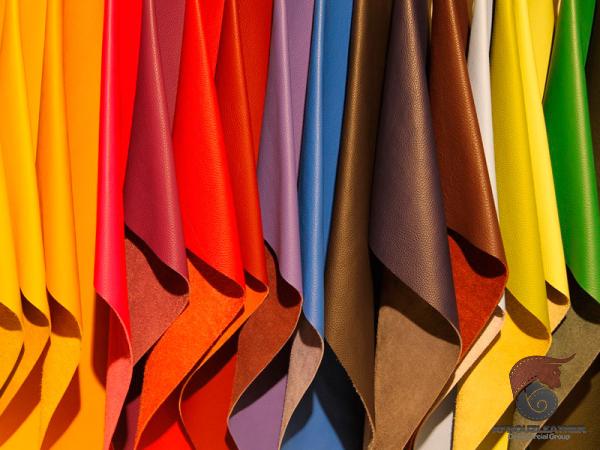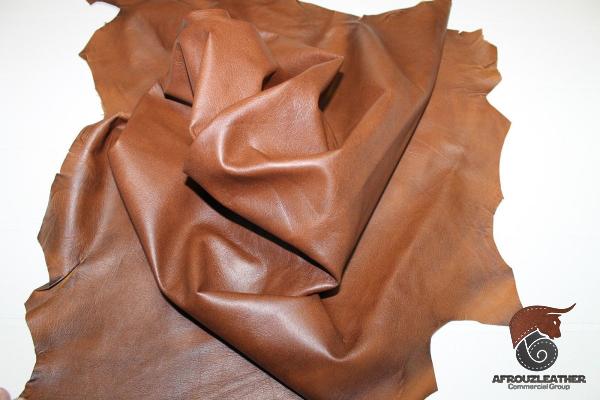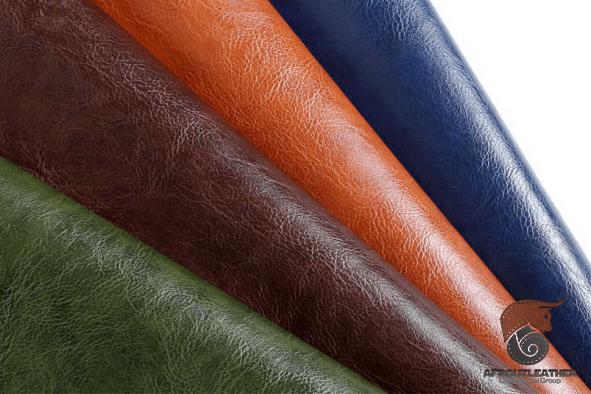Synthetic leather, also known as faux leather or vegan leather, has gained significant popularity as an alternative to genuine leather due to its affordability, durability, and increasing focus on sustainability. With a rising global demand for synthetic leather, the Philippines has emerged as a key player in the industry, offering a wide range of high-quality synthetic leather products. This article aims to provide a comprehensive overview of the synthetic leather supplier industry in the Philippines. Overview of the Synthetic Leather Supplier Industry: The synthetic leather industry in the Philippines has experienced considerable growth in recent years. The country’s competitive advantage lies in its abundance of raw materials, skilled labor, and established manufacturing facilities.
leather
 Synthetic leather suppliers in the Philippines cater to a diverse range of industries, including fashion, automotive, furniture, and accessories. Key Players and Market Dynamics: Several key players dominate the synthetic leather supplier market in the Philippines. Manufacturers such as PELLECO, ALDO Leather, and Raponi International Inc. have established themselves as leading suppliers, utilizing advanced production techniques and high-quality materials. These companies leverage their expertise to meet the varying demands of their customers, both locally and internationally. One of the main factors driving the growth of synthetic leather suppliers in the Philippines is the country’s flourishing fashion industry. With a focus on sustainable fashion and an increasing number of ethical consumers, the demand for vegan leather products has soared. Additionally, the automotive and furniture industries have also witnessed significant demand for synthetic leather, further fueling the growth of local suppliers.
Synthetic leather suppliers in the Philippines cater to a diverse range of industries, including fashion, automotive, furniture, and accessories. Key Players and Market Dynamics: Several key players dominate the synthetic leather supplier market in the Philippines. Manufacturers such as PELLECO, ALDO Leather, and Raponi International Inc. have established themselves as leading suppliers, utilizing advanced production techniques and high-quality materials. These companies leverage their expertise to meet the varying demands of their customers, both locally and internationally. One of the main factors driving the growth of synthetic leather suppliers in the Philippines is the country’s flourishing fashion industry. With a focus on sustainable fashion and an increasing number of ethical consumers, the demand for vegan leather products has soared. Additionally, the automotive and furniture industries have also witnessed significant demand for synthetic leather, further fueling the growth of local suppliers.
Specifications of leather
 Product Range and Quality: The synthetic leather suppliers in the Philippines offer a diverse range of products that cater to various industries. These products include synthetic leather fabrics, sheets, rolls, and finished goods such as bags, shoes, and upholstery. Suppliers in the country are known for their ability to deliver high-quality products that closely mimic the look and feel of genuine leather at a fraction of the cost. Technological Advancements and Manufacturing Practices: Philippine synthetic leather suppliers have embraced advanced manufacturing practices to ensure the production of high-quality products. These suppliers utilize cutting-edge techniques and machinery to manufacture synthetic leather that meets international quality standards. Manufacturers also invest in Research and Development (R&D) activities to continuously innovate and offer new materials with improved properties. Sustainability and Eco-Friendly Initiatives: Given the increasing concern for the environment and the adverse effects of the fashion industry on it, synthetic leather suppliers in the Philippines have shifted their focus towards sustainability and eco-friendly practices. Many companies in the industry have adopted recycling programs to minimize waste and utilize eco-friendly materials. They also adhere to stringent environmental regulations and certifications to ensure their products’ eco-friendliness.
Product Range and Quality: The synthetic leather suppliers in the Philippines offer a diverse range of products that cater to various industries. These products include synthetic leather fabrics, sheets, rolls, and finished goods such as bags, shoes, and upholstery. Suppliers in the country are known for their ability to deliver high-quality products that closely mimic the look and feel of genuine leather at a fraction of the cost. Technological Advancements and Manufacturing Practices: Philippine synthetic leather suppliers have embraced advanced manufacturing practices to ensure the production of high-quality products. These suppliers utilize cutting-edge techniques and machinery to manufacture synthetic leather that meets international quality standards. Manufacturers also invest in Research and Development (R&D) activities to continuously innovate and offer new materials with improved properties. Sustainability and Eco-Friendly Initiatives: Given the increasing concern for the environment and the adverse effects of the fashion industry on it, synthetic leather suppliers in the Philippines have shifted their focus towards sustainability and eco-friendly practices. Many companies in the industry have adopted recycling programs to minimize waste and utilize eco-friendly materials. They also adhere to stringent environmental regulations and certifications to ensure their products’ eco-friendliness.
buy leather
 Challenges and Future Outlook: Although the synthetic leather supplier industry in the Philippines has seen significant growth, it also faces certain challenges. The rising competition from international players and the constant need for innovation and product differentiation are some of the major challenges. Additionally, fluctuations in raw material prices, especially petroleum-based materials, impact the industry’s profitability. However, the future looks promising for synthetic leather suppliers in the Philippines. The growing global demand for sustainable and cruelty-free alternatives to genuine leather presents ample opportunities for the industry. With an emphasis on product quality, technological advancements, and eco-friendly practices, Philippine suppliers are well-positioned to meet these market demands. Conclusion: The synthetic leather supplier industry in the Philippines has witnessed remarkable growth thanks to its competitive advantages in terms of raw material availability, skilled labor, and manufacturing capabilities. With a wide range of high-quality products and a focus on sustainability, Filipino suppliers have established themselves as significant players in the global synthetic leather market. As the demand for synthetic leather continues to rise, the industry’s future outlook remains positive, promising further growth and opportunities for suppliers in the Philippines.
Challenges and Future Outlook: Although the synthetic leather supplier industry in the Philippines has seen significant growth, it also faces certain challenges. The rising competition from international players and the constant need for innovation and product differentiation are some of the major challenges. Additionally, fluctuations in raw material prices, especially petroleum-based materials, impact the industry’s profitability. However, the future looks promising for synthetic leather suppliers in the Philippines. The growing global demand for sustainable and cruelty-free alternatives to genuine leather presents ample opportunities for the industry. With an emphasis on product quality, technological advancements, and eco-friendly practices, Philippine suppliers are well-positioned to meet these market demands. Conclusion: The synthetic leather supplier industry in the Philippines has witnessed remarkable growth thanks to its competitive advantages in terms of raw material availability, skilled labor, and manufacturing capabilities. With a wide range of high-quality products and a focus on sustainability, Filipino suppliers have established themselves as significant players in the global synthetic leather market. As the demand for synthetic leather continues to rise, the industry’s future outlook remains positive, promising further growth and opportunities for suppliers in the Philippines.

Your comment submitted.